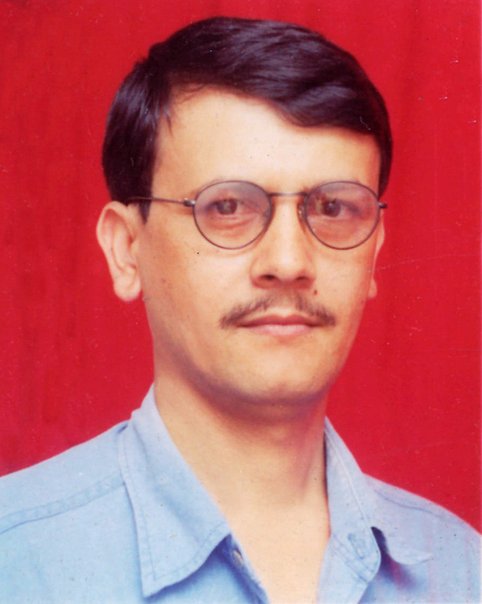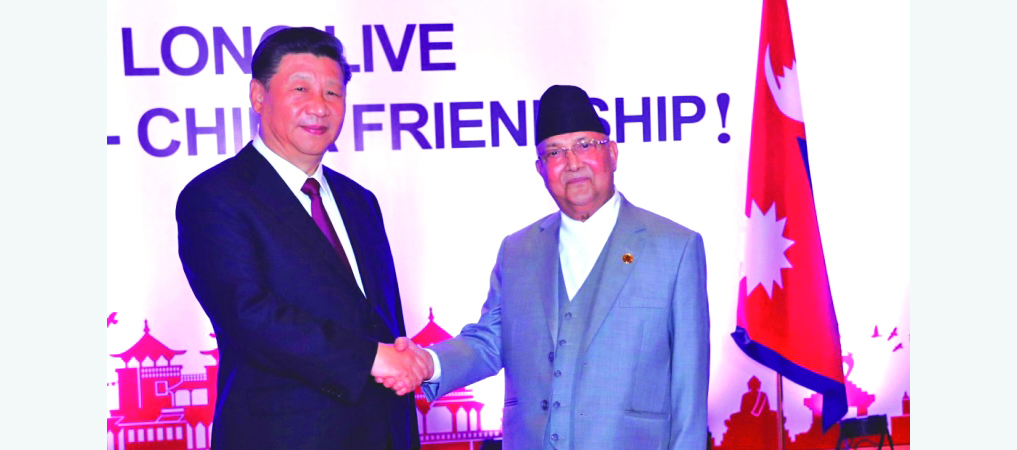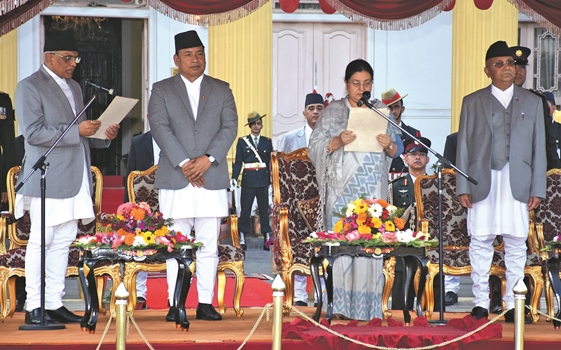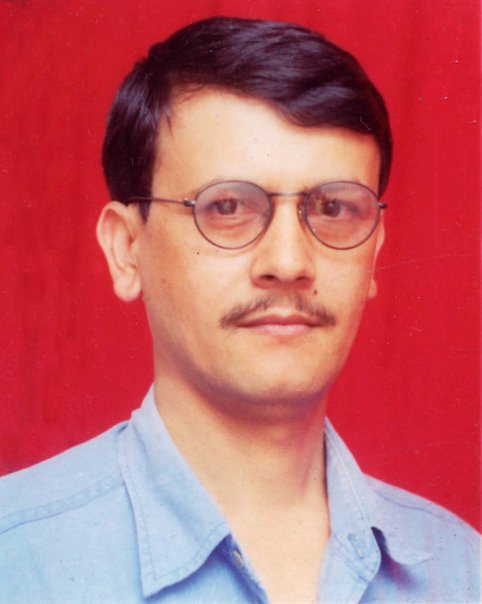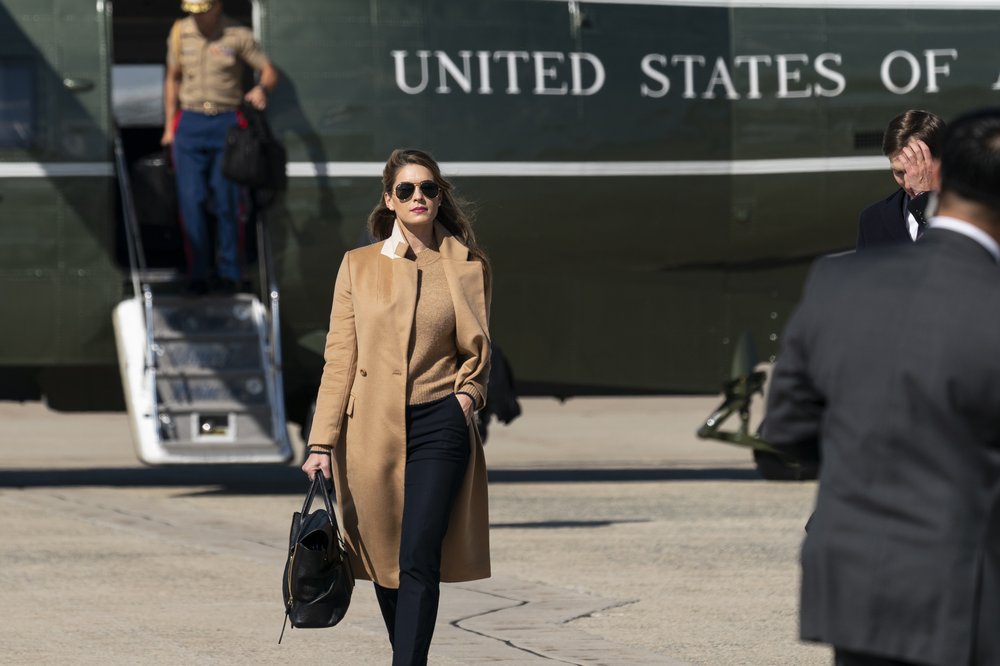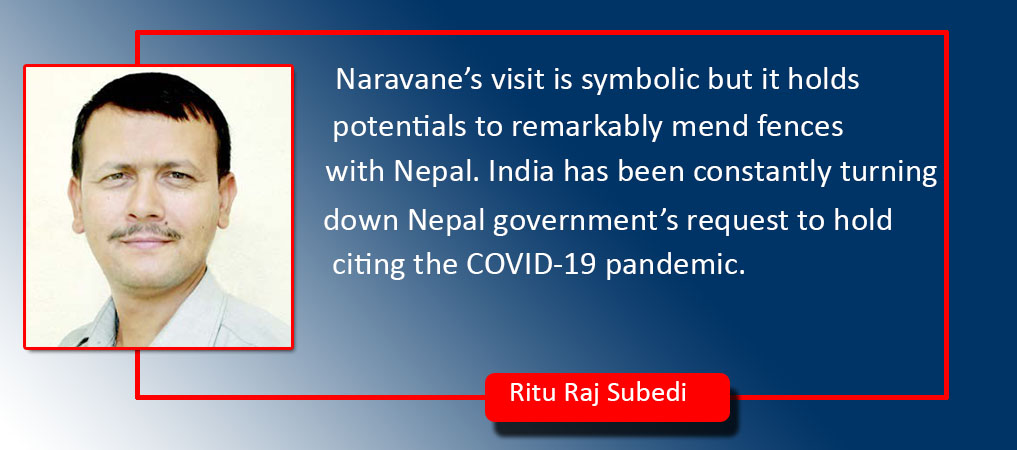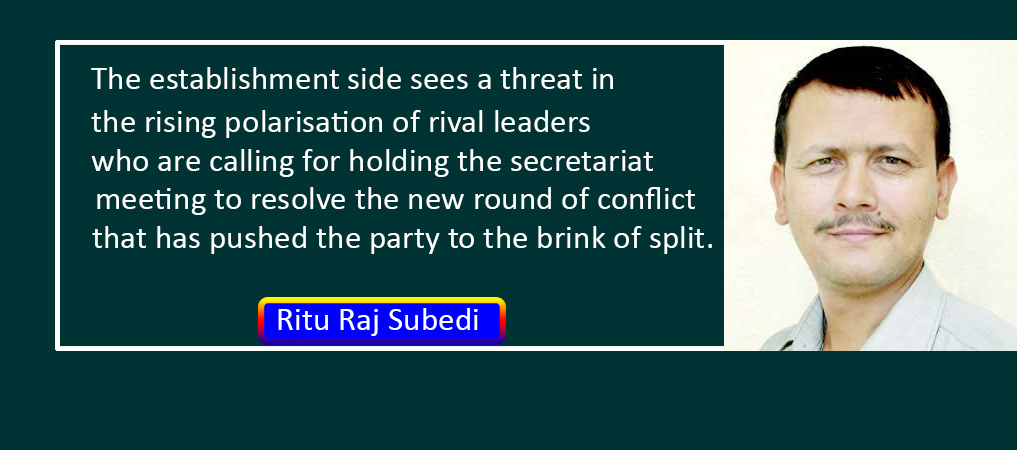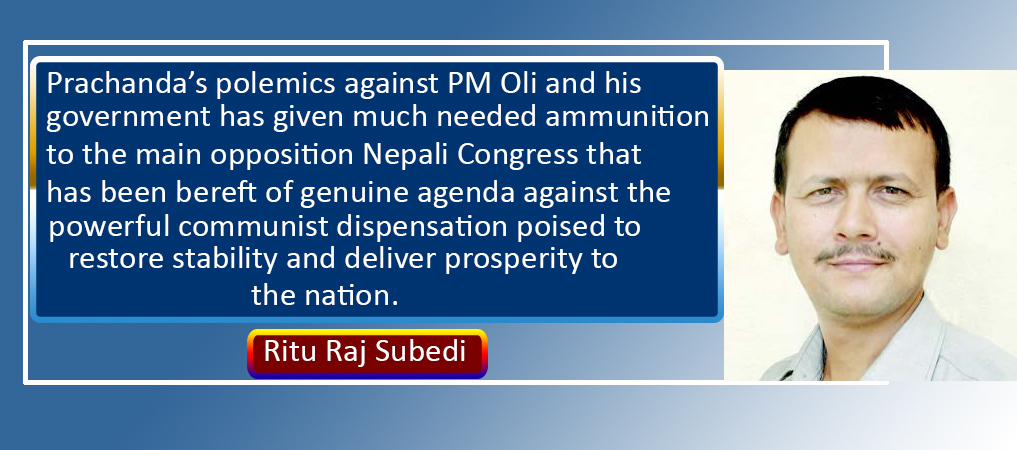100 Years Of CPC
Mesmerising Revolution And Economic Miracles

Ritu Raj Subedi
On the evening of July 23, exactly one hundred years ago today, the delegates of communist groups from different regions of China had gathered inside a French Concession building in Shanghai to establish the Communist Party of China (CPC). Thirteen Chinese representatives and two from Communist International (Comintern) had attended the CPC’s first founding National Congress that took place from 23 to 31 July, 1921. However, the meeting did not go smooth. On July 30, a police raid disrupted the meeting forcing the delegates to flee to nearby Nanhu Lake in Jiaxing for security reason.
On July 30, the CPC held its crucial meeting in a slowly moving boat. It was a cloudy sky, with a drizzle falling upon the beautiful Nanhu Lake. It was exuding tranquillity and elegance. Amidst this favourable natural aura, the participants took historic decisions that would change the fate of China and world’s development landscape a century later. They heatedly discussed and passed “First Programme of the Communist Party of China,” determined the party's name, goals and basic policies.
According to the archive of People’s Daily, the party decided to channel its main energy to organise labour movement and maintain an independent relations with other political parties. As the party was just born, it formed only a three-member central bureau, with Chen Duxiu as the general secretary. Mao Zedong had come from Changsha to attend the meeting.
Inspiration
The Bolshevik revolution, spread of Marxism, rising labour movements, feudal exploitation, and the May Fourth Movement, which was an ‘anti-imperialist, cultural and political movement,’ had inspired the Chinese communists to establish the CPC. “With the salvoes of Russia’s October Revolution in 1917, Marxism-Leninism was brought to China. Then in 1921, as the Chinese people and the Chinese nation were undergoing a great awakening and Marxism-Leninism was becoming closely integrated with the Chinese workers’ movement, the Communist Party of China was born,” said CPC General Secretary and President Xi Jinping while addressing a centenary function at the Tiananmen Square in Beijing on July 1.
The CPC has been officially marking July 1 as its establishment day since 1938. Interestingly, Chen Duxiu and Li Dazhao, who founded CPC, did not attend the first national congress. They had sent their representatives to the conference. “They were among the most brilliant intellectual leaders of China,” Mao told Edgar Snow, the writer seminal book ‘Red Star Over China.’ Both were instrumental in arousing Mao’s interest in Marxism. He worked as the assistant librarian of Li, who was the head librarian and professor at the Peking University.
Chen and Mao crossed swords over the party’s strategy and tactical line. Chen stood for urban resurrection and moderation for Kuomintang. He constantly turned down Mao’s proposal for armed peasant movement against landlords and radical land reform programme. After his strategy turned catastrophic, Chen, considered as China’s Lenin, was expelled from party. He later became a leading figure of Trotskyism in China. On the other, Li had recognised the role of peasants in the Marxist movement, which greatly influenced Mao to determine peasants as the main protagonist of revolution. The first Chinese communist, was executed by landlords in the 1927 purge.
That year also brought disaster to the nascent party. The First United Front of the CPC and Kuomintang (Nationalist Party or KMT) against the Japanese aggression collapsed, with right-wing KMT leader Chiang Kai-shek launching brutal counterrevolution. Communists were massacred in Shanghai and Nanking, and expelled from the Wuhan government. Several communist uprisings, including that of Nanchang and Guangzhou could not survive. Chen’s ‘opportunistic petty-bourgeois policy’ has been blamed for all anti-communist purge that kicked off civil war, forcing the CPC to create Red Army and start Long March to escape the encirclement campaign of KMT forces. The CPC set up base areas (soviets) in north and west of China to accumulate power and launch guerrilla warfare to overthrow ‘the three mountains of imperialism, feudalism, and bureaucrat-capitalism.’
Mao resolutely fought against Chen’s right-wing deviation and Li Lisan’s ultra-left line and espoused apt political and military strategy to engineer the New Democratic Revolution. Upon securing decisive victory against Kuomintang, he proclaimed the establishment of the People’s Republic of China (PRC) on October 1, 1949. Speaking from the Tiananmen Square, he also announced that Chinese people have stood up. Started with 50 members, the CPC has now become the world’s largest party, with over 95 million members, leading the country of more than 1.4 billion people. However, there were 50,000 Communists prior to the counterrevolution. ‘After the killings,’ there were only about 10,000. By 1960, there were around 800 survivors – one fourth of them were in different party’s position.
Ironically, the names of two founders of CPC were conspicuously missed out in Xi’s centenary speech. He recalled only Chairman Mao, Zhou Enlai, Liu Shaoqi, Zhu De, Deng Xiaoping and Chen Yun for their contribution to China’s revolution, construction and reform. Without unswerving support of Zhou, Zhu, Lin Biao and Peng Dehuai, it was impossible for Mao to rise to leadership and launch united fighting against domestic reactionaries and foreign invaders. Lin Biao, a brain behind the scandalous Cultural Revolution, was a designated successor of Mao but he plotted a botched coup against his own boss. After his conspiracy was disclosed, he fled from China and died in an air crash in Magnolia in 1971.
Like Plato’s philosopher king, Mao was a visionary thinker but his vision of grand communist project was fraught with controversy and failures. He was against the idea of giving material incentives for economic development. He thought such approach would lead to the bourgeoisification of the communist system. His experiment with soviet-style, commune-based command economy ended in utter failure. His great legacy suffered big setback owing to his Great Leap Forward and Cultural Revolution – both the events plunged China into political turmoil and caused colossal damage to the party. The Western narratives often exaggerate these two cases to discredit Mao, undermining his role in liberation movement and rapid improvement in social conditions of Chinese people. The life expectancy of Chinese has increased by 31 years during his leadership from 1949 to 1976.
Stunning success
China has achieved miraculous economic development since the party adopted the policy of reforms and opening-up in 1978, thanks to the pragmatic policy of Deng, who introduced socialist market economy and socialism with Chinese characteristics. The CPC has written the most successful anti-poverty story in human history, lifting more than 850 million people out of poverty in four decades. Average life expectancy of Chinese has doubled to almost 80 since then. It has achieved the first centenary goal of establishment of a moderately prosperous society in all respects and is now heading toward the second centenary goal of building a great modern socialist country by 1949 to fulfil the Chinese dream of national rejuvenation. China has become the second largest economy and set to overtake the United States by 2028.
Under President Xi, China’s national and international status has been greatly enhanced. His anti-corruption and anti-poverty campaign has made him popular among the Chinese. His signature development strategy Belt and Road Initiative has boosted connectivity, trade, investment and people-to-people contacts in more than 100 participating countries. He has proved his leadership mettle by quickly stemming the COVID-19 and achieving post-pandemic economic recovery. His call for building a community of shared future of humankind, and making anti-COVID vaccines global public good and the global governance system democratic, fair and inclusive has found enthusiastic supporters in both developing and developed nations.
Xi has been considered the most powerful leader of China after Mao. He can write his name as one of the greatest leaders in China’s if he succeeds to accomplish another challenging task that Mao could not do – that is the unification of Taiwan. It is the CPC’s historic mission to advance peaceful national reunification based on the one-China principle and the 1992 Consensus. In early 1950s, Mao had planned to take over the separated island state controlled by his sworn enemy Chiang Kai-shek. According to the Defence History of South Korea, Mao had prepared 100,000 soldiers to bring Taiwan under the control of mainland but his plan fell through as he had to dispatch this force in form of the People's Volunteer Army to North Korea to rescue Kim Il Sung in the wake of the breakout of war between two Koreas in October 1950.
Ideological innovation
What was the secret behind the success of CPC? What factors enable it to stay in power for more than a century? It is the ideological adaption, people’s centric policy, hard work, sacrifices and integrity of party workers. Marxism was well adapted to the specific Chinese realities and culture. There was continuous modification of CPC’s guiding principle as it gets a new leader that holds the highest powerful posts of party, government and military. Five generations came since the establishment of PRC and so was the theoretical innovation. Based on Marxism-Leninism, Mao Zedong Thought, Deng Xiaoping Theory, the Theory of Three Represents of Jiang Zemin and the Scientific Outlook on Development of Hu Jintao, the CPC is now implementing Xi Jinping Thought on Socialism with Chinese Characteristics for a New Era.
When the communist regimes fell down in Soviet Union and Easter Europe in 1989, the capitalist West also expected the downfall of communism in China, Vietnam and North Korea. But its calculation proved wrong because unlike Russia, China had put solid institutional structures that keep communist party connected with the people. Communist Party of Soviet Union had turned bureaucratic and dogmatic, lost full control in army and touch with people, and failed to deliver economy. It disintegrated for lack of policy and ideological innovation, efficiency and incentives. China learnt from the defeat of Russian communists and overcome those shortcomings. China’s strong grassroots democracy, autonomy to the regions and ethnic groups and meritocracy-based governance system has enabled the CPC to keep the potential political threat at bay.
One factor that helps China achieve stunning growth is its economic engagement with the USA that wanted to exploit growing Sino-Soviet conflict to tip geopolitical balance in its favour. In order to weaken the Soviet Union, the US supported China with capital, technology and trade facilities, which assisted China to gain high economic growth for decades.
NCP-CPC fraternal ties
Nepal Communist Party and the CPC had established their fraternal ties in 1952 three years before the governments of two nations had opened their diplomatic relations. NCP leader Gauri Bhakta Pradhan took months to reach Peking via Mustang, Taklakot and Xinjiang. It was an arduous and heroic journey full of adventures and security risks.
He travelled through difficult terrains and snowy mountains. “Pradhan accepted party’s decision and alone crossed the mountains, reached China beyond Himalayas and returned home. It was his fearless enthusiasm and steadfast commitment to the party,” said general secretary Pushpa Lal Shrestha
During his three-year stay in China, he frequently met, befriended and talked to Chairman Mao, Zhou Enlai, Liu Shaoqi and Deng Xiaoping. He took political and military training, and toured different parts of China. Through Pradhan, Chairman Mao had extended warm wishes to NCP, expressing happiness over the establishment of Nepal Communist Party in 1949. Zhou and Liu had sympathised with Nepali communist and peasant movements, according to Pradhan, who passed away some years ago.
Nepal communist movement is at the crossroads. Despite huge popular support, Nepali communists have been engaged in bitter infighting and divided into over a dozen groups. They should take a leaf out of CPC's book – ‘upholding the Party’s fundamental purpose of wholeheartedly serving the people and practicing a people-centered philosophy of development.’
(Deputy Executive Editor of The Rising Nepal, Subedi writes regularly on politics, foreign affairs and other contemporary issues.
subedirituraj@yahoo.com)
Recent News

Do not make expressions casting dout on election: EC
14 Apr, 2022
CM Bhatta says may New Year 2079 BS inspire positive thinking
14 Apr, 2022
Three new cases, 44 recoveries in 24 hours
14 Apr, 2022
689 climbers of 84 teams so far acquire permits for climbing various peaks this spring season
14 Apr, 2022
How the rising cost of living crisis is impacting Nepal
14 Apr, 2022
US military confirms an interstellar meteor collided with Earth
14 Apr, 2022
Valneva Covid vaccine approved for use in UK
14 Apr, 2022
Chair Prachanda highlights need of unity among Maoist, Communist forces
14 Apr, 2022
Ranbir Kapoor and Alia Bhatt: Bollywood toasts star couple on wedding
14 Apr, 2022
President Bhandari confers decorations (Photo Feature)
14 Apr, 2022
